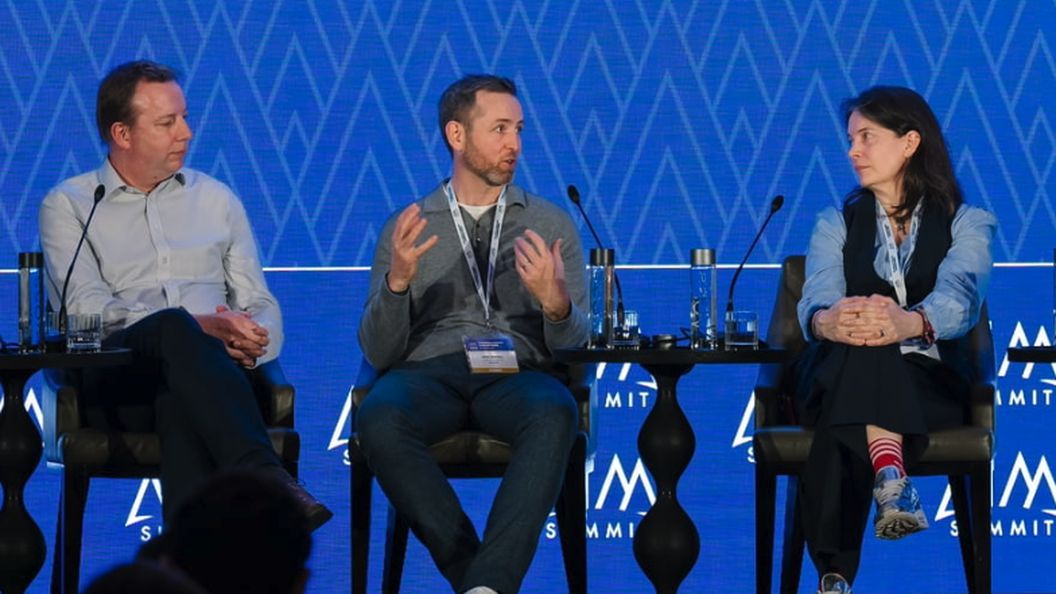(Bloomberg) -- Governor Kazuo Ueda will face intense market scrutiny Friday after the Bank of Japan’s rate hike and his clear hawkish signals contributed to a meltdown in global financial markets earlier this month.
Ueda is scheduled to respond to questions from lawmakers in the lower house of parliament from 9:30 a.m., followed by another session in the upper house starting at 1 p.m. Each session is set to last two and a half hours.
The unusual hearing, taking place when the broader parliament isn’t in session, was called by lawmakers insisting on an explanation from the BOJ. Hawkish signals from the central bank contributed to a market rout that wiped out as much as $6.4 trillion from global stock markets this month, including the biggest plunge on record for the Nikkei 225. Markets later pared losses, with the S&P 500 back within sight of its mid-July record high and the Nikkei up around 20% from its low earlier this month.
Speaking hours before a speech by Federal Reserve Chair Jerome Powell at Jackson Hole, Ueda’s likely aim is to generate as little news and volatility as possible. He’ll likely make no policy commitment, while giving assurances that there won’t be a rate hike when financial markets are unstable, according to BOJ watchers.
“Ueda’s ultimate goal is to create no shock,” said Tsuyoshi Ueno, senior economist at NLI Research Institute. “The very reason this hearing is happening is because of the global market turmoil that followed the BOJ’s hawkish turn. If Ueda creates further chaos, that would be a nightmare for the central bank.”
Ueda’s right-hand man Shinichi Uchida already tried to assuage some market anxiety earlier this month, by saying there won’t be any rate hike when financial markets are unstable. He also said the BOJ will keep its current interest rate level “for the time being.”
While some calm has been restored in markets since Uchida spoke on Aug. 7, the contrast between him and Ueda has caused unease. Whether there will be any change in nuance from Ueda is a key point that BOJ watchers will be watching closely. Many of them still see the risk of a rate hike this year, under the assumption that a market rout can only last so long.
UBS Securities expects a rate hike in October, while Nomura Securities and Deutsche Securities see an increase in December. Barclays brought forward its call to January from April last week.
Hours after the BOJ policy board decided to raise benchmark rates to 0.25% from a range of 0 to 0.1% on July 31, Ueda spooked market players by stressing his view that the BOJ will raise rates further as long as the central bank’s economic outlook is realized.
Together with jitters around US earnings and intensified concerns over the outlook for the world’s biggest economy, Ueda’s hawkish messages sent the Nikkei 225 down by the most among major global indexes, while the yen’s jump triggered a massive global unwinding of carry trades.
“It’s unlikely he’ll backtrack or label the move a mistake,” said Charu Chanana, head of currency strategy at Saxo Markets. “Instead, he is expected to reinforce that Japan’s inflation and wage growth momentum could justify further rate hikes, though he may adopt a more balanced tone to avoid unsettling the markets.”
Tough Balance
The governor won’t want to sound too dovish either due to concerns over weakening the yen. In the run-up to the July policy meeting, the tumbling currency led to growing calls for a rate hike by politicians and business executives.
“If he crystallizes hawkishness once again, that’s likely to strengthen the yen while stocks will tumble again,” NLI’s Ueno said. “If he goes with dovish signals, that risks causing the yen to weaken so much that it renews various old concerns, placing him back where he was before the July meeting.”
The market spotlight will shift from Ueda to Powell within several hours. The Fed chairman will speak at Jackson Hole, and his words will be scrutinized for any clues on the Fed’s policy outlook.
It’s also a critical time for Japanese politics, as Prime Minister Fumio Kishida announced last week he will step down to leave the nation’s top job to whoever wins the ruling Liberal Democratic Party’s leadership election on Sept. 27. Ueda was handpicked by Kishida.
Updates on a key inflation gauge are due on Friday morning, and the index is expected to edge up, underscoring lingering price pressures.
“Markets are going to be volatile on Friday,” said Shoki Omori, chief desk strategist at Mizuho Securities. Ueda will likely echo Uchida’s comments, but “the governor might be misguided to an answer in which markets misinterpret or take it in a way they want, say a hawkish stance.”
--With assistance from Brian Fowler.




